Cognitive Development Numbers Worksheets for Ages 5-7
36 filtered results
-
From - To
Unlock your child’s potential with our Cognitive Development Numbers Worksheets designed for ages 5-7. These engaging, printable activities from Kids Academy focus on enhancing early math skills by helping young learners recognize, count, and understand numbers. Tailored to develop critical thinking and boost cognitive abilities, our worksheets offer a fun, interactive approach to mastering number concepts. Perfect for use at home or in the classroom, they ensure a solid foundation in math while promoting logical reasoning and problem-solving skills. Elevate your child’s learning journey and build confidence with every fun and educational worksheet.
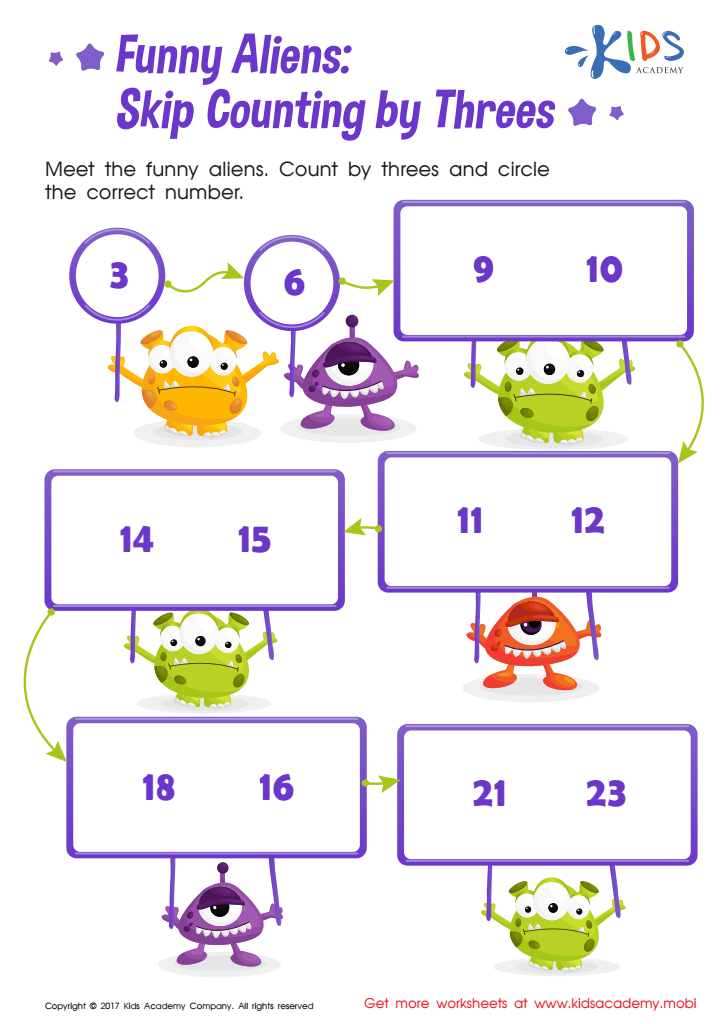

Skip Counting by 3s: Funny Aliens Printable
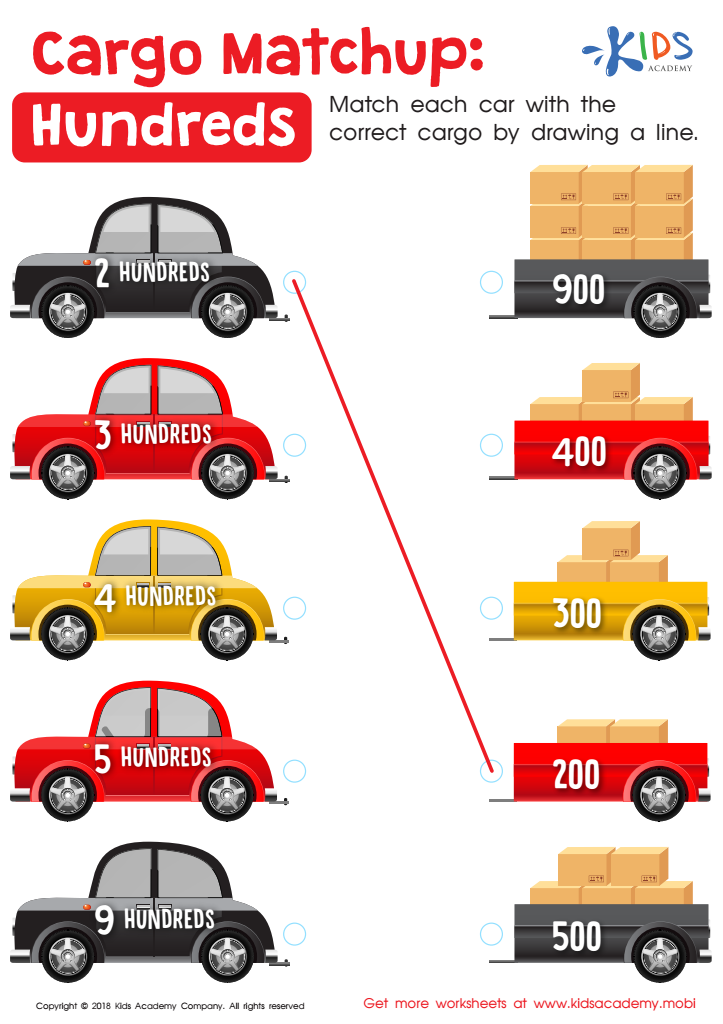

Cargo Matchup: Hundreds Worksheet


Count and Match Boxes with Vegetables
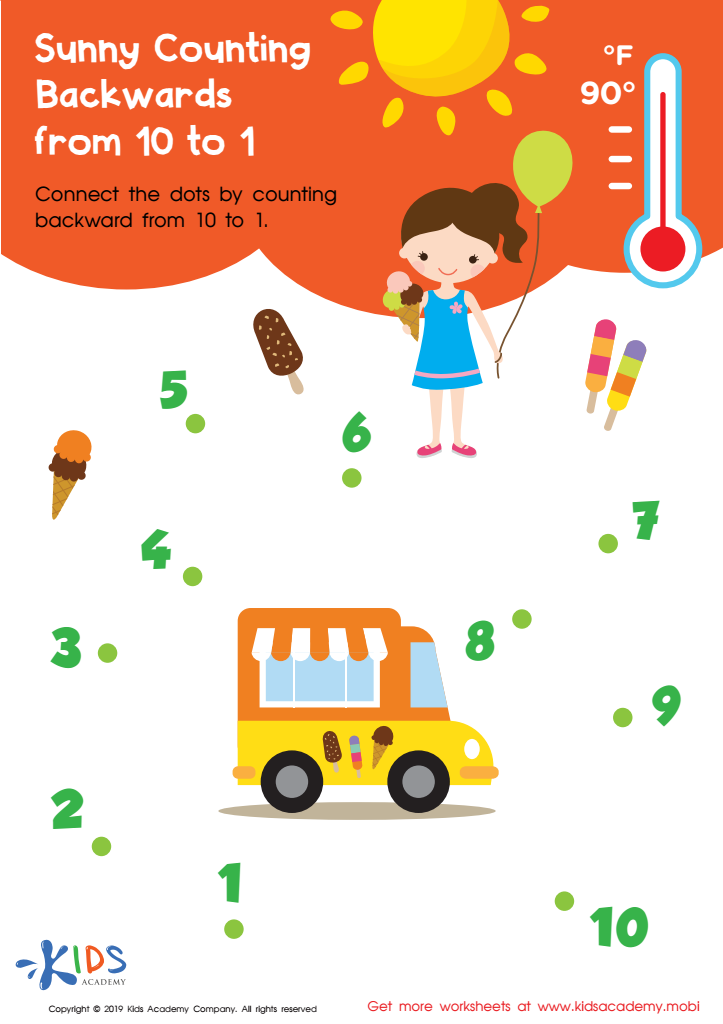

Sunny Counting Backwards from 10 to 1 Worksheet
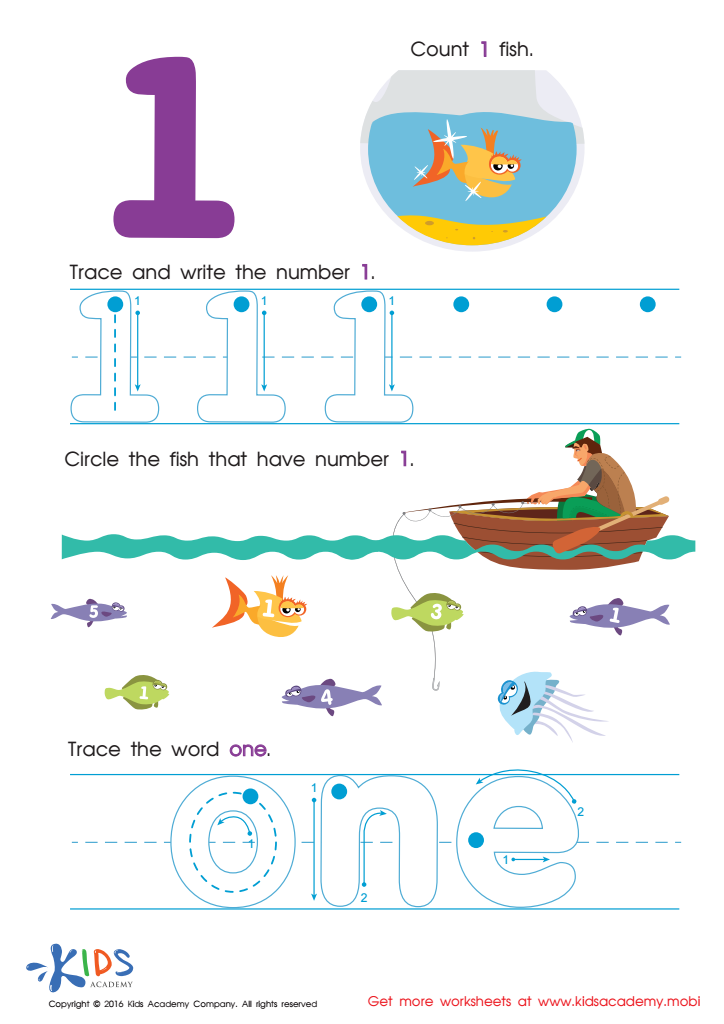

Learning to Write 1 Worksheet
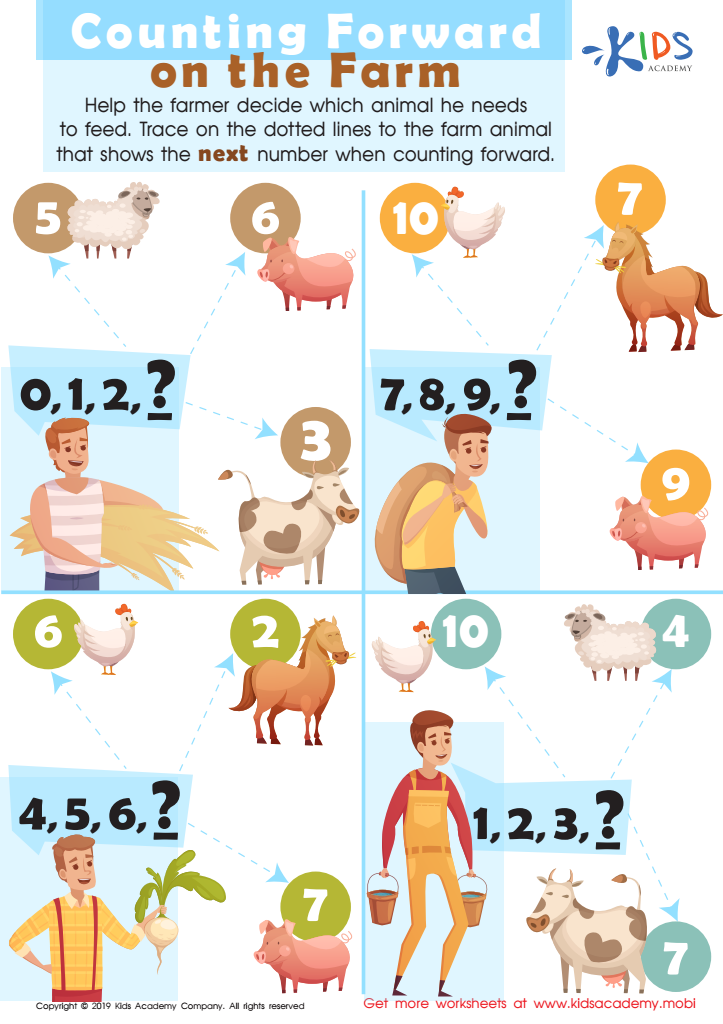

Counting Forward On the Farm Worksheet
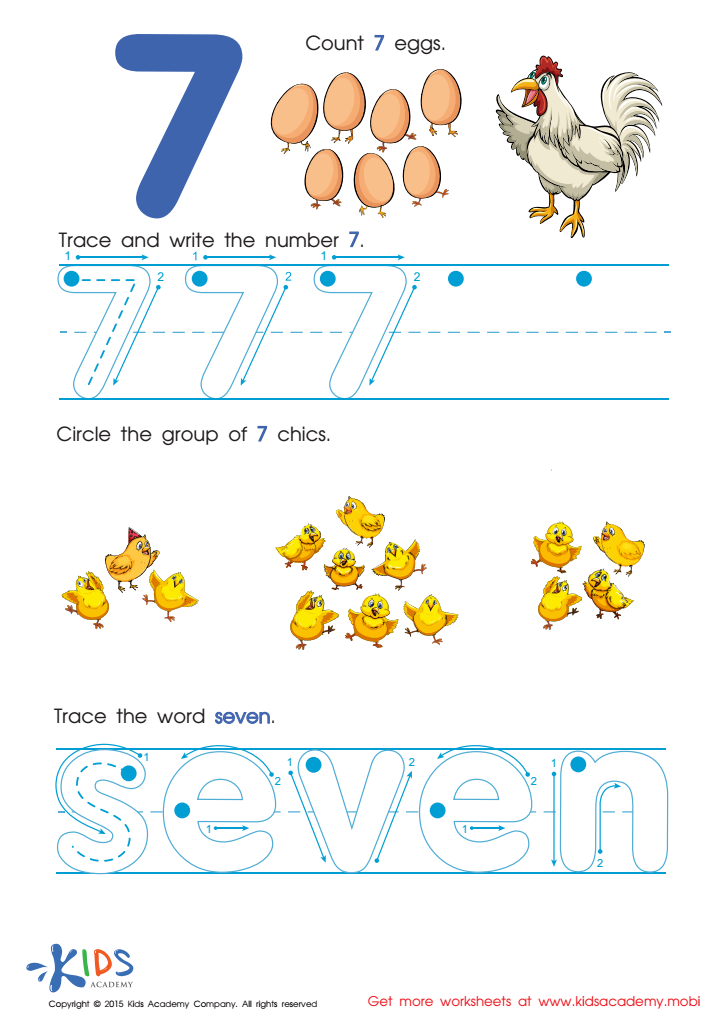

Trace And Write Number 7 with Fun Worksheet
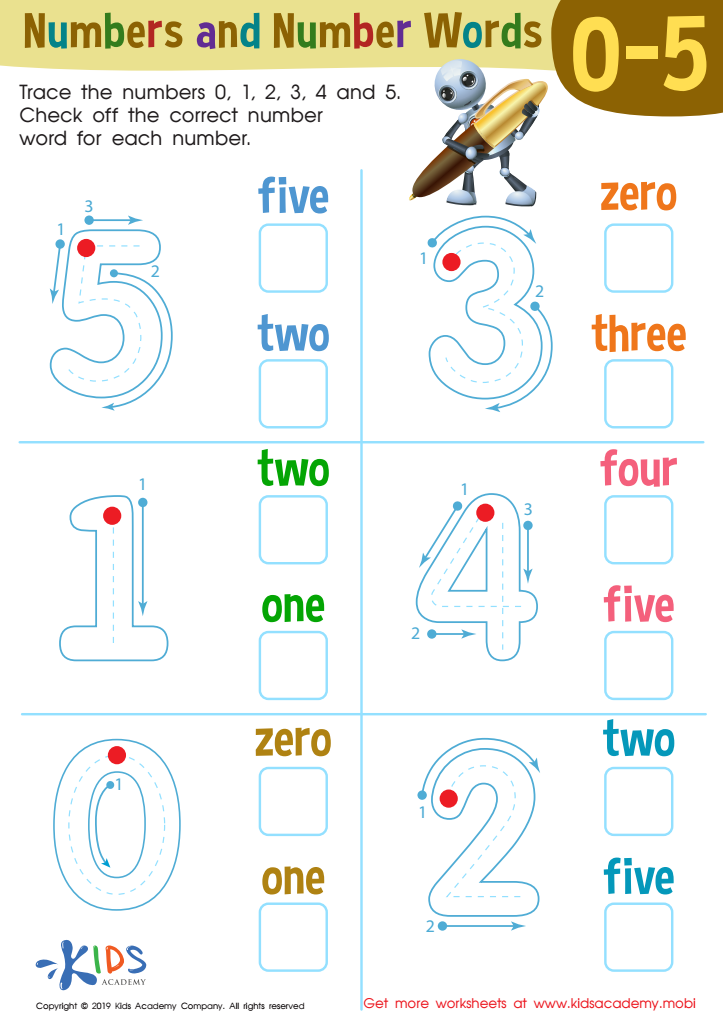

Numbers and Number Words Worksheet
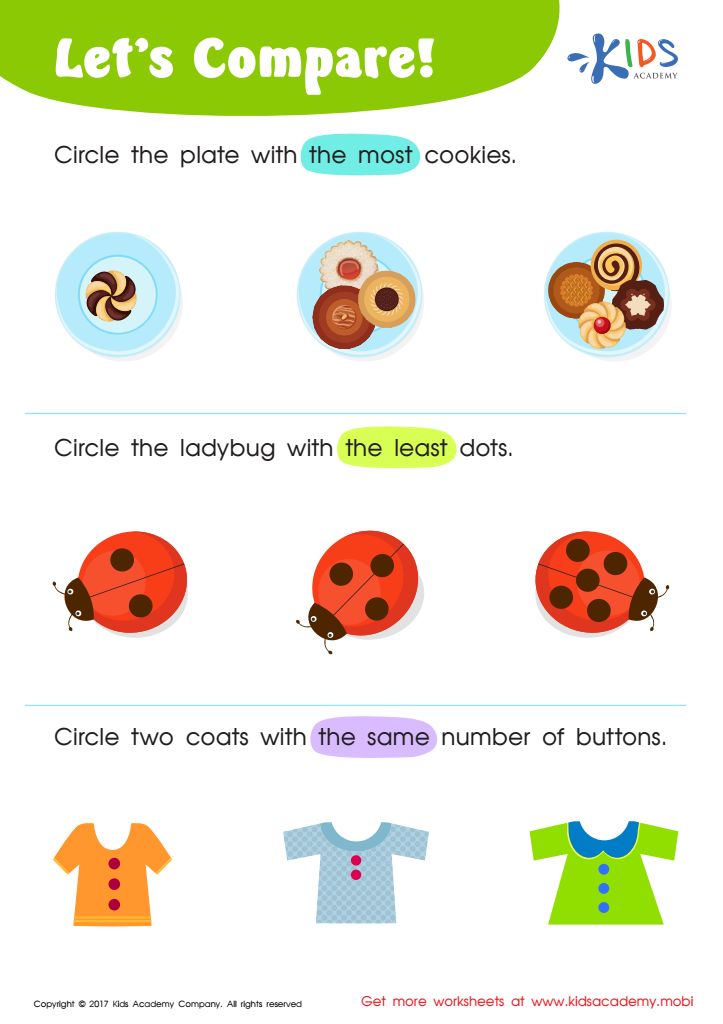

Matching: Classifying Toys by Size Worksheet
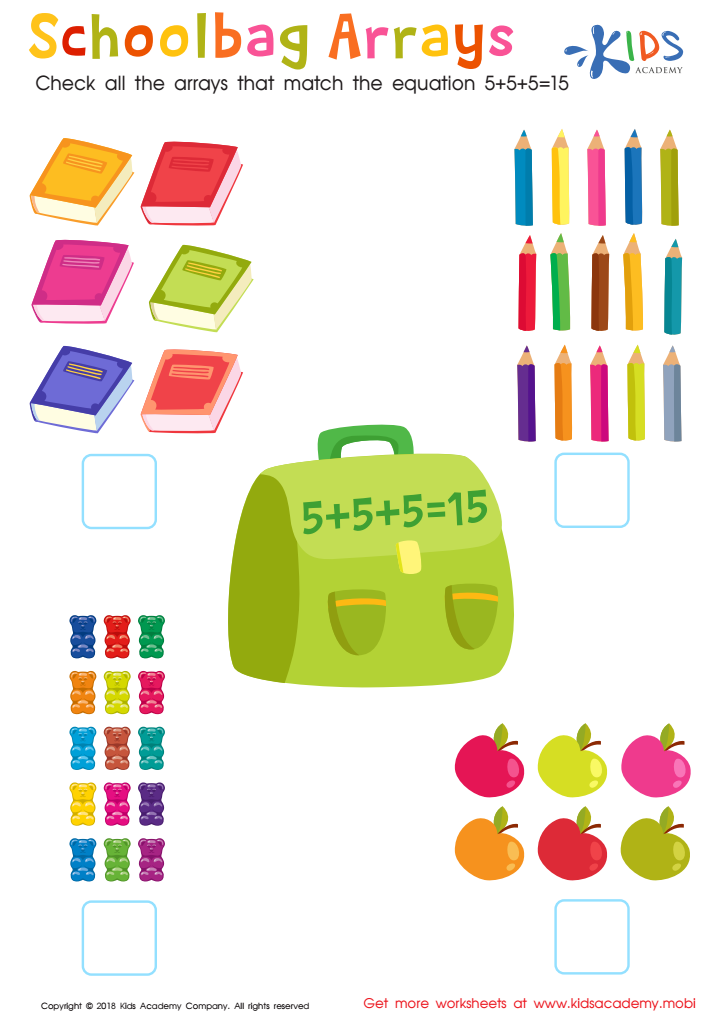

Schoolbag Arrays Worksheet
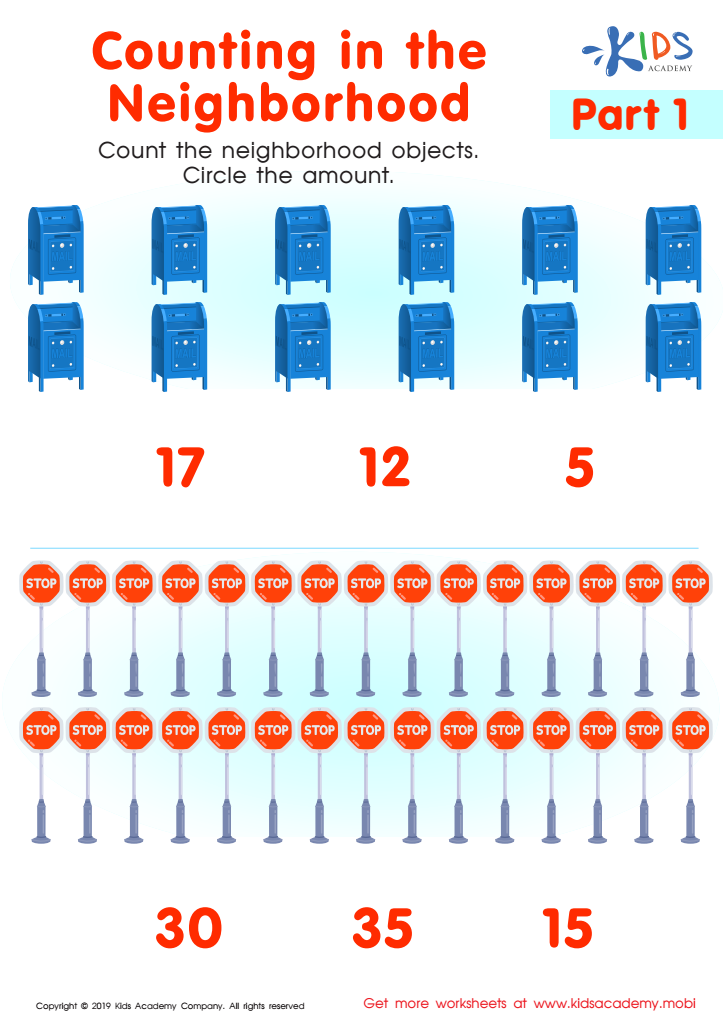

Counting in the Neighborhood Part1 Worksheet
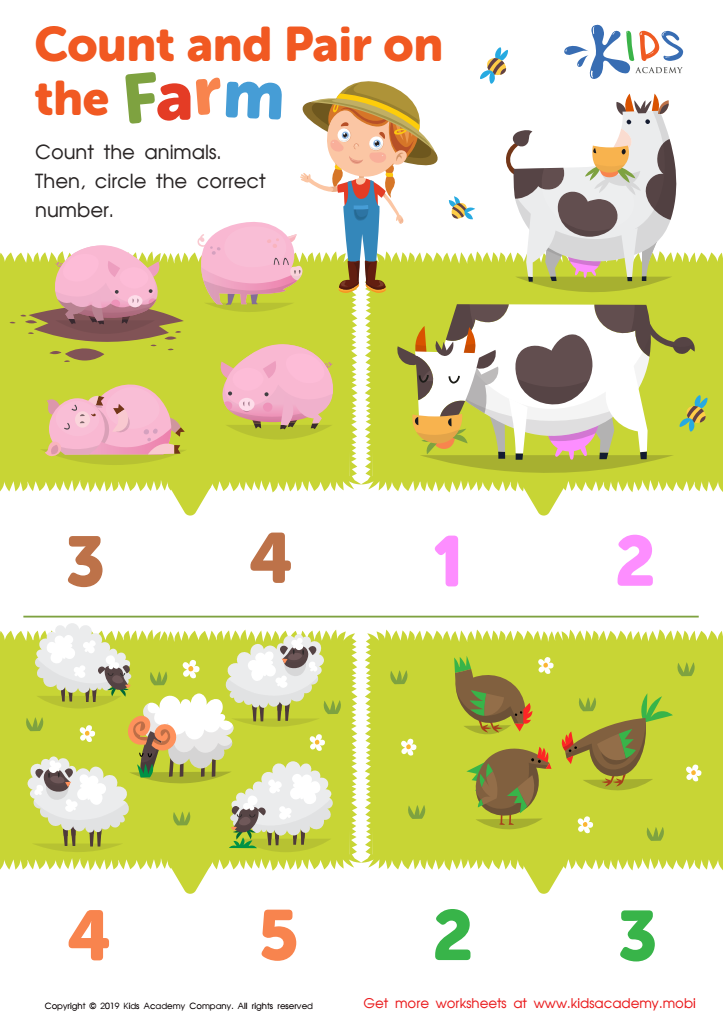

Count and Pair on the Farm Worksheet
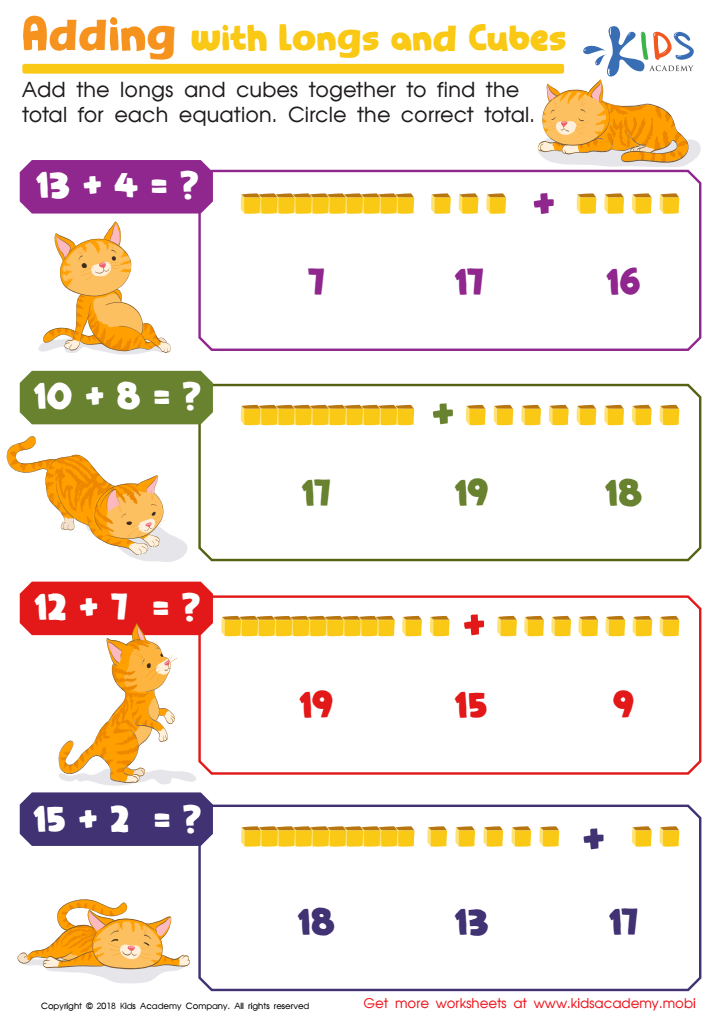

Adding With Longs and Cubes Worksheet


Colorful Arrays Bingo Worksheet
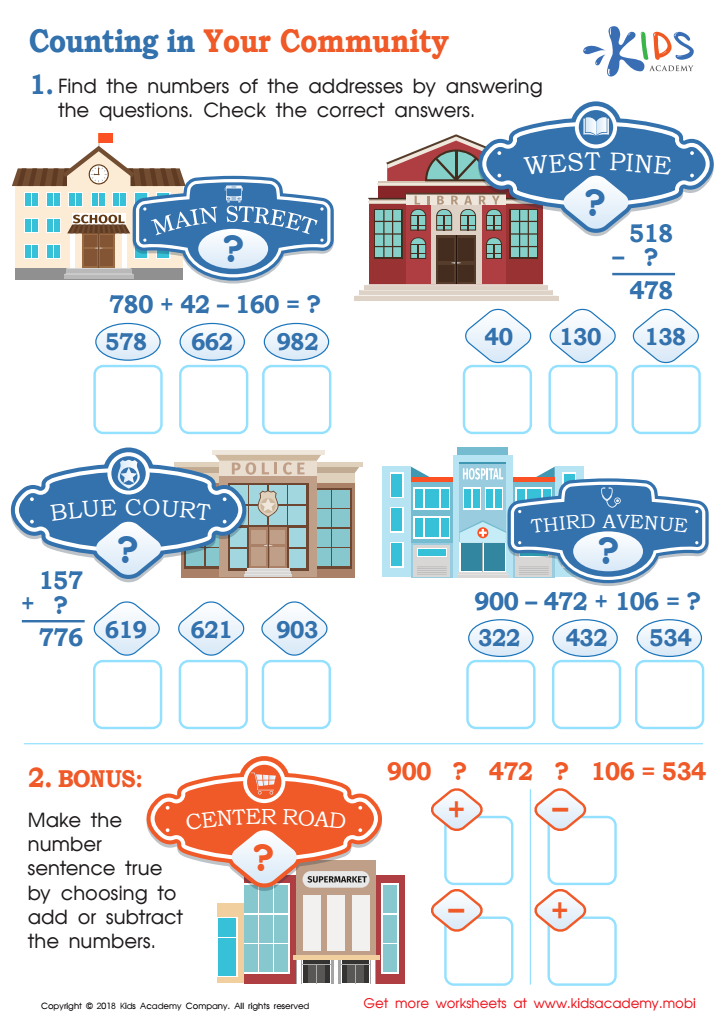

Counting in Your Community Worksheet
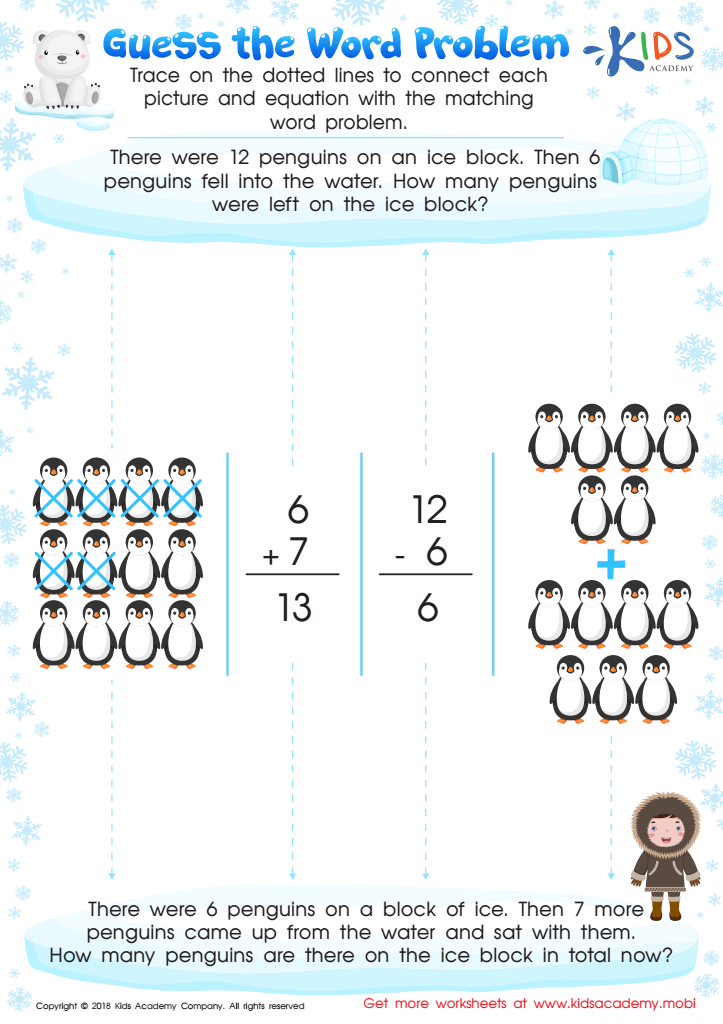

Guess the Word Problem Worksheet
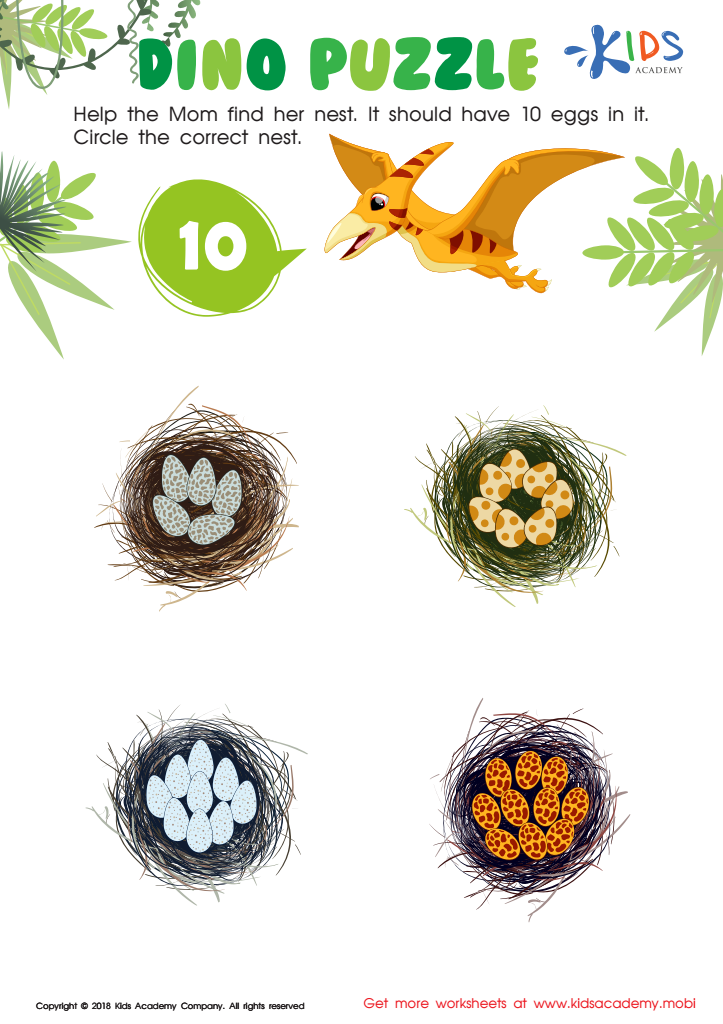

Learn Number For Kindergarten Worksheet
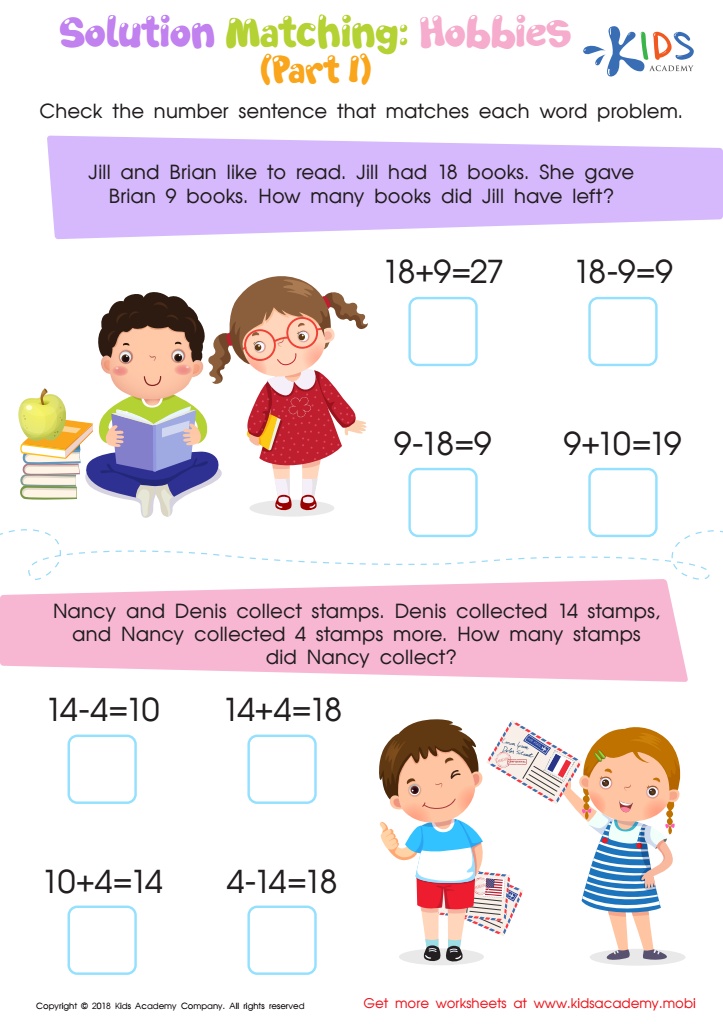

Solution Matching: Hobbies. Part 1 Worksheet
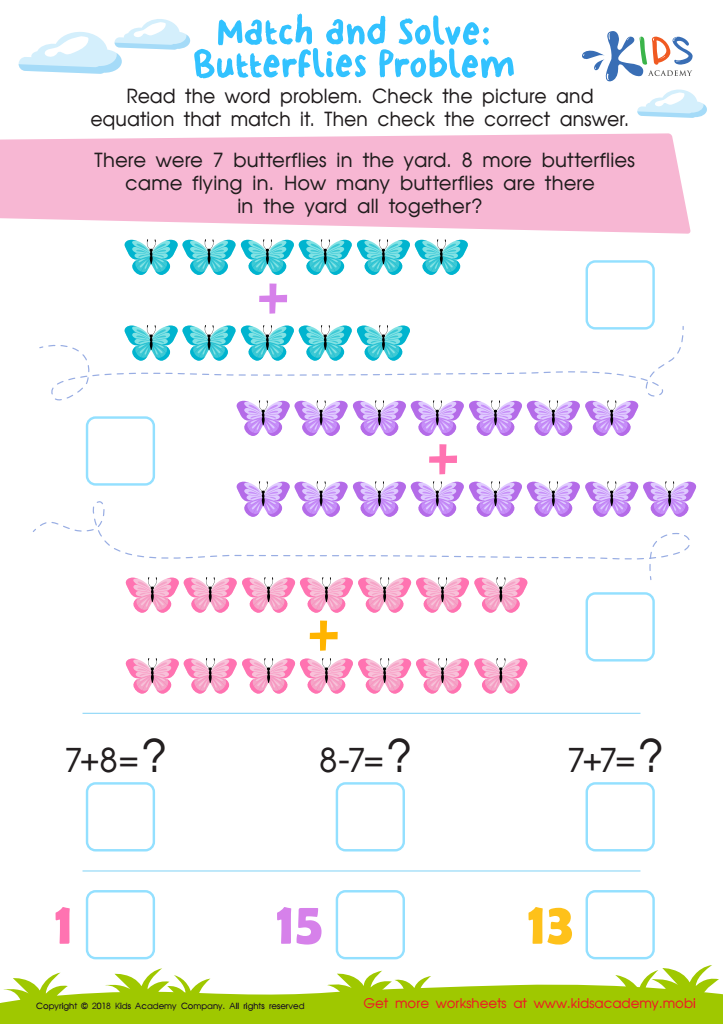

Match and Solve: Butterfly Problem Worksheet
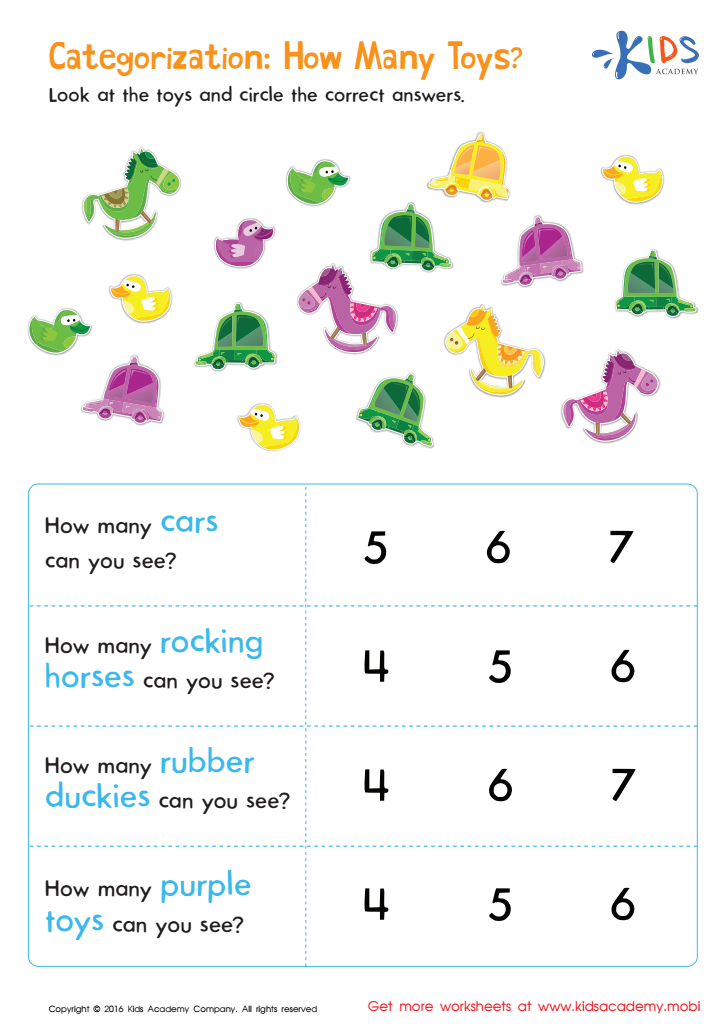

Classifying Toys by Type and Color Sorting Worksheet
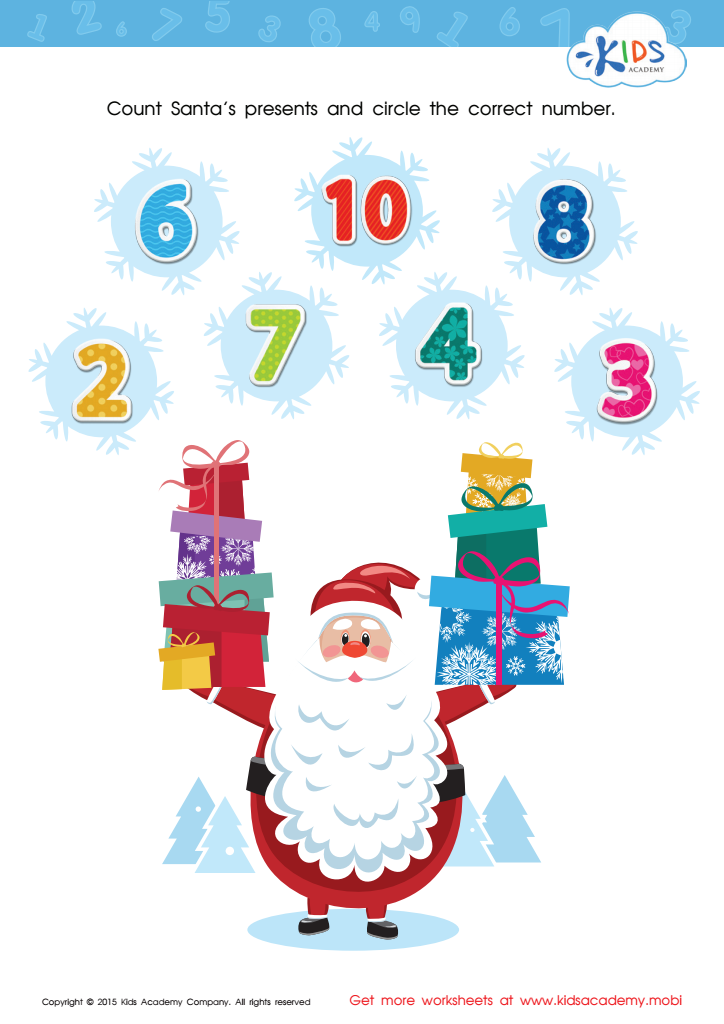

Count Santa's Presents Worksheet
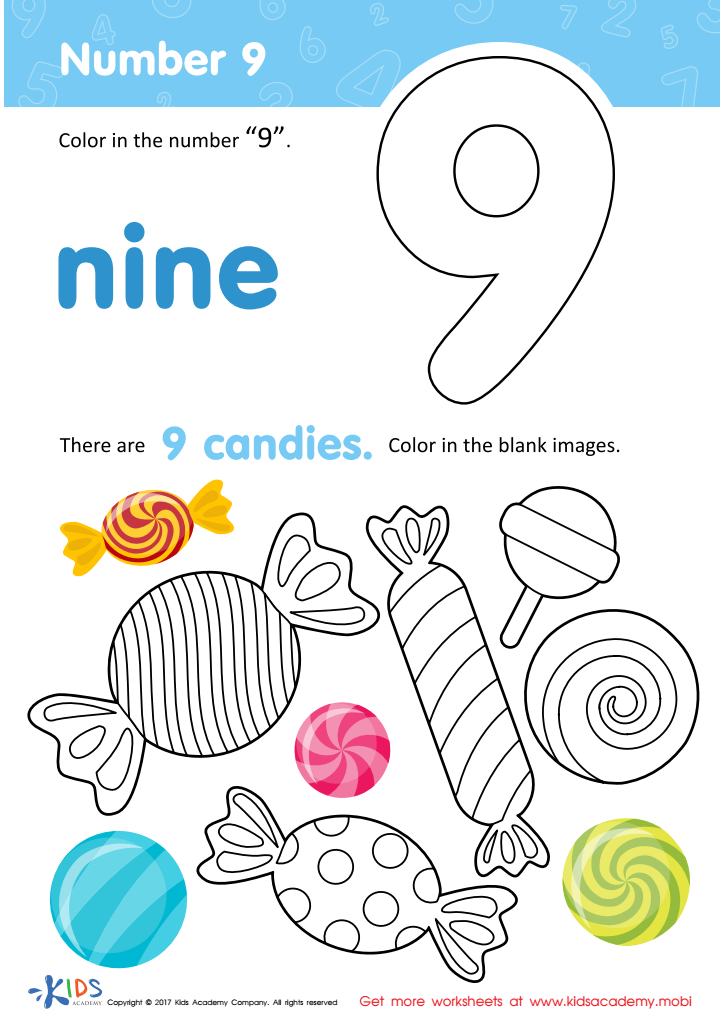

Number 9 Printable
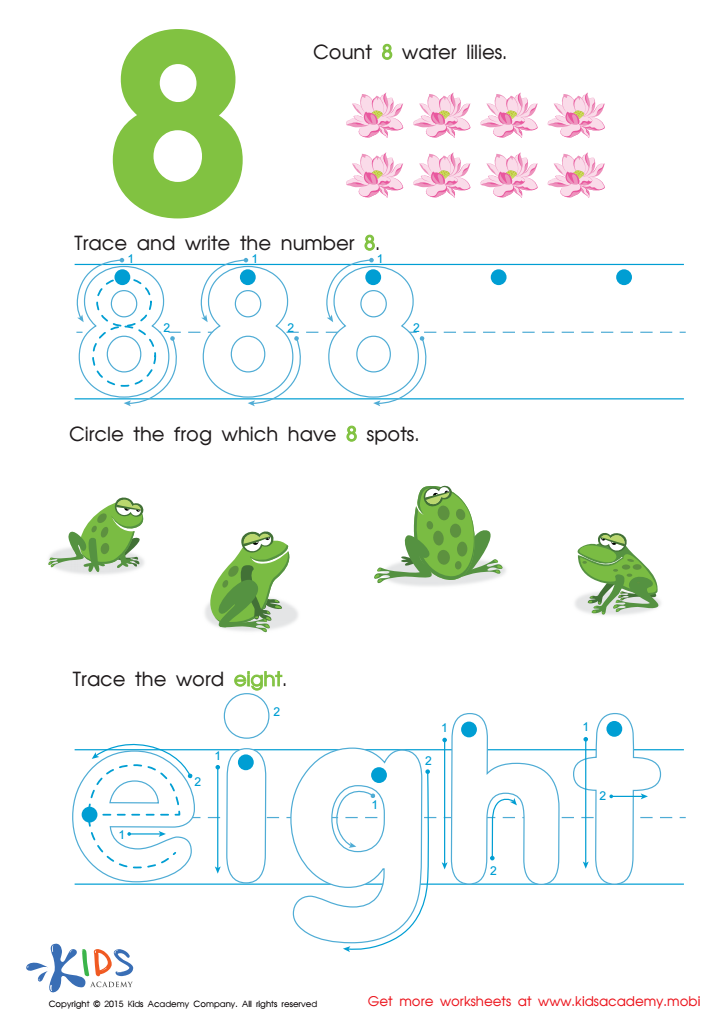

Learn Number 8 Easily Worksheet


Pirate Ship Connect Dots Worksheet
Parents and teachers should pay close attention to cognitive development in children aged 5-7, particularly in the area of numerical understanding, because this time frame is crucial for establishing foundational mathematical skills. During these formative years, children transition from basic recognition of numbers to more complex cognitive tasks like addition, subtraction, and grouping.
First, early numerical skills are linked to later academic success. Mastery of basic concepts such as counting, number sense, and simple arithmetic lays the groundwork for more advanced mathematical thinking that children will encounter in later grades. Research indicates that early proficiency in these areas is a strong predictor of future achievement in math.
Second, cognitive development in math enhances other essential brain functions. For instance, problem-solving skills, logical reasoning, and abstract thinking, nurtured through early math activities, are transferable skills that benefit broader academic learning and daily decision-making.
Furthermore, understanding numbers boosts a child's confidence and reduces anxiety related to math. This fosters a positive attitude toward learning and creates a self-reinforcing cycle of competence and enthusiasm.
Finally, fostering strong numerical skills early helps identify and address potential learning difficulties. Timely interventions can be more effective and less stressful than trying to catch up later. Therefore, ensuring sound cognitive development in math during these years is setting the stage for lifelong learning and success.
 Assign to My Students
Assign to My Students





















